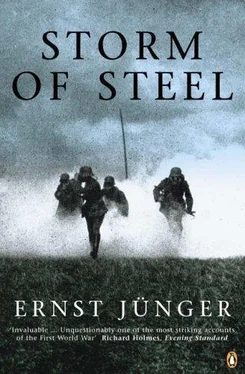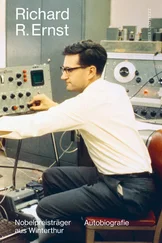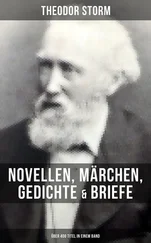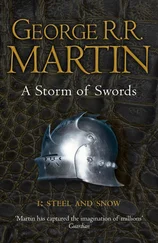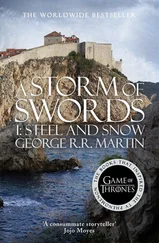Ernst Jünger
STORM OF STEEL
Translated with an Introduction by Michael Hofmann
Storm of Steel (In Stahlgewittern is the original title) is one of the great books of World War I, if not the greatest. All sorts of trustworthy and unlikely people – and trustworthy often precisely because unlikely: cosmopolites, left-wingers, non-combatants -have stepped up to express their admiration, often in suitably embarrassed or bemused fashion: Boll and Borges, Enzensberger and Brecht, Gide and Moravia. In 1942, Gide wrote in his diary: ‘Ernst Junger’s book on the 1914 War, Storm of Steel, is without question the finest book on war that I know: utterly honest, truthful, in good faith.’
Its contrast with most of the others is stark. It has no pacifist design. It makes no personal appeal. It is a notably unconstructed book. It does not set its author and his experience in any sort of context. It offers nothing in the way of hows and whys, it is pure where and when and of course, above all, what. There is nothing in it about the politics of the war – nothing even on its outcome – and very little on the wider strategy of its conduct. It begins the moment Private Ernst Junger first detrains in France, on 27 December 1914, at the age of nineteen, with (though we aren’t told this) a rushed school-leaving certificate and a couple of months’ training behind him, having volunteered on 1 August, the opening day of the war. (It is hard to imagine an English autobiographer or belletrist – a Graves or a Sassoon, amateur and holistic – wouldn’t have included that, or indeed the fact that the year before, as a bored romantic youth full of wanderlust, he had run away to Algeria to join the French Foreign Legion!) It ends, in one of a bare handful of scenes that are away from the action, back in Germany four years later, when he is too badly hurt to carry on, a decorated lieutenant and the youngest-ever recipient of the pour le Merite.
War is all – fighting is all – everything else is cropped away. And, from first to last, in the affirmative. It is the work of a man whom the war made – and who, in World War II, was to be again – a professional soldier. It was published long before the likes of Blunden, Graves, Remarque and Sassoon, all of which appeared in the late 1920s, at a classic ten-year distance from the events they describe, giving their public and themselves time to recover; only Barbusse’s novel Le Feu (Under Fire), from 1917, came out much before Ernst Junger’s account was first privately printed with a local firm (the family gardener, Robert Meier, was designated as the ‘publisher’) in 1920, at the instigation of Junger’s father. The impressively cumbersome original title was In Storms of Steel: from the Diary of a Shock Troop Commander, Ernst Jünger, War Volunteer, and subsequently Lieutenant in the Rifle Regiment of Prince Albrecht of Prussia (73rd Hanoverian Regiment).
The initial print-run was 2,000, the intended readership presumably members of the regiment and other veterans, and the work, in literary terms, was undistinguished and at times, apparently – hardly a surprise, considering its author’s repeated rush to get out of school – ‘even fell short of the required standard for a sixth-form essay’. The ‘diary’ element, though never entirely suppressed later, was initially mostly all there was, closely following the sixteen notebooks Junger filled during the war. The book steadily sold through its small printings, but it wasn’t the instant bestseller it is sometimes thought to have been. Junger was recruited by Mittler & Son, a noted publisher of militaria in Berlin, and wrote more books on the war, including the viscerally – as well as headily – unpleasant treatise On Battle as an Inner Experience (1922) – of which I could not bring myself to read more than the excerpts I read years ago in a book on German history – and a couple of spin-offs covering material from Storm of Steel in a more lingering and opinionated way: Copse 125 (1925) and Fire and Blood (1925). A shot at a novel, Sturm – after one of the characters, nomen est omen – was abandoned after a few installments. In the mid 1920s, then, Junger was already a prolific and established war writer before such a thing really existed. (His first non-war book, a memoir of his childhood, didn’t appear until 1929.) Even so, acute observers were afraid they might lose Junger the soldier to literature. On balance, I suppose, that’s what happened, but it’s a close call. Junger has remained as much identified with World War I – or war in general – as with writing. I forget who it was who said they couldn’t picture Junger the author at all except in uniform.
In the late 1920s, via Stahlhelm and the veterans’ scene, he found himself as a publicist in nationalist politics. Because of the dearth of politics in Weimar, everything, paradoxically, was politicized; even the defeated generals, Ludendorff and Hindenburg, were rehabilitated as political figures. This is when Junger made his notorious remark that he ‘hated democracy like the plague’, but to some extent that was what one might call ‘Weimar talk’. Junger was courted, not surprisingly, by the Nazis, and twice offered a seat in the Reichstag, but he wasn’t interested. He didn’t join the Deutsche Akademie der Dichtung (chaired for a year by the poet Gottfried Benn), nor was he ever a member of the Nazi Party. He and Hitler did exchange signed copies of their books, but even that seems like a mismatch: My Struggle for Fire and Blood. There was always something aloof and solipsistic about Junger – the word ‘aristocratic’ is often misapplied to him – that meant that as a soldier and a writer and even an ideologue he was in it for himself, and never quite, at that. He was not a novelist or a politician or a penseur, though with elements of all three. He may have described himself as ‘a field marshal of ideas’, but, as Thomas Nevin drily remarks, ‘he calls no philosophical system to attention’. It is hugely to Junger’s credit (though it is as much a matter of temperament as of choice) that he was never an opportunist – if anything, rather the opposite. The 1930s were a boom time for him – sales of Storm of Steel shot into six figures – but he retired from the public eye: left Berlin, wrote essays that – irritatingly for the Nazis – were aimed always beyond the present and the immediate future, wrote on entomology (the other passion of his life), travelled widely in Europe and further afield, lived quietly with his family in rural seclusion.
In 1939, he was back in uniform, and promoted to captain. He spent most of World War II with the German occupation in Paris, consorting with French intellectuals, eating and drinking and buying old books – and keeping a record of all these activities, and of a discreet political dissent, in his diaries, later published as Strahlungen (Irradiations might be the best English equivalent). These confirm (along with Storm of Steel, of course) that his gifts as a writer are primarily those of a diarist: descrip- tiveness and an ear for speech, attention to detail, mobility of perspective, intellectual stamina and disjunctiveness, at his best over medium distances, as a writer of passages rather than of books or sentences. After the war, Junger’s stock was predictably lower, and for a time he was not allowed to publish in Germany. But as early as 1955 he was (for the first time in his life) winning literary prizes, and in 1957 he began his association with the German publisher Klett that saw not one but two editions of his Collected Works, one completed in ten volumes in 1965, the second in eighteen in 1983. (Along with Wieland, Klopstock and Goethe, Jiinger is one of only four German authors prolific and important and long-lived enough to see their own ‘second edition’.) By the time of his death in 1998, at the age of a hundred and two, he had been heaped with virtually all the literary and civic honours Germany – and indeed Europe – had to bestow. He enjoyed a particularly devoted following in France, where one critic reckoned up an astonishing forty-eight of his works in print.
Читать дальше
